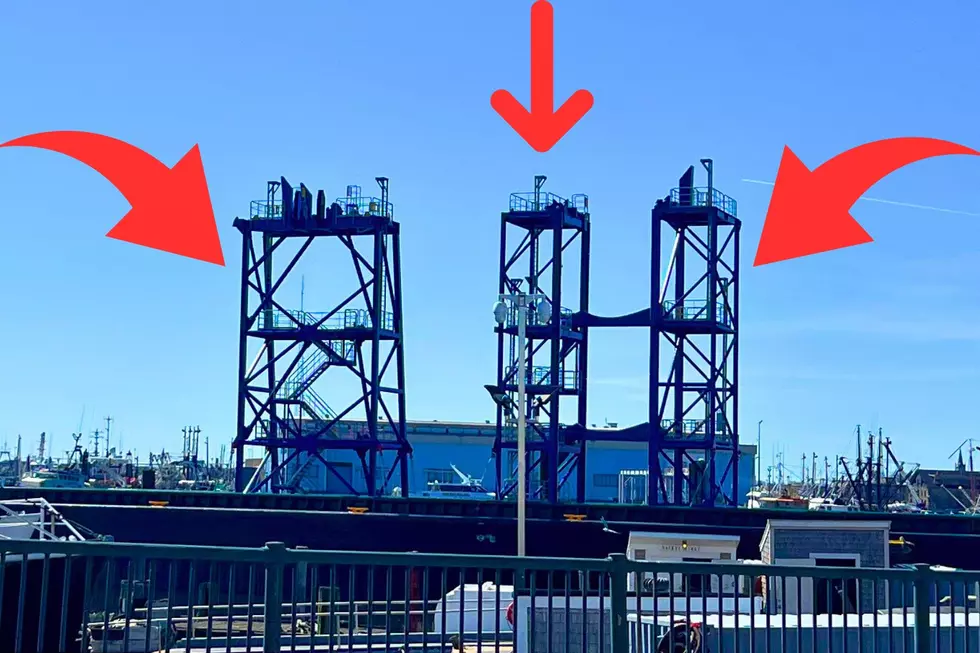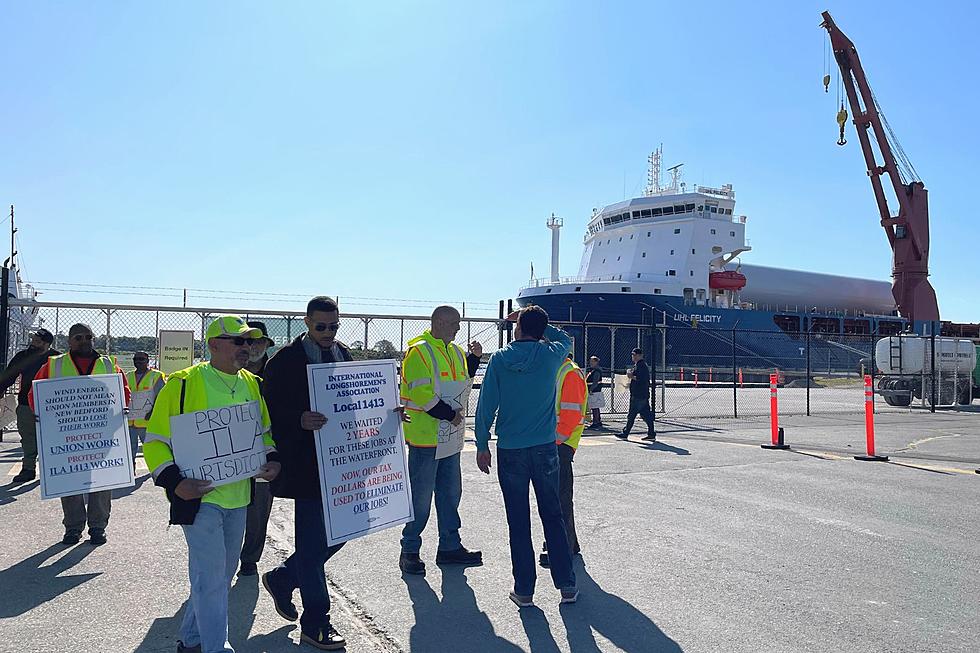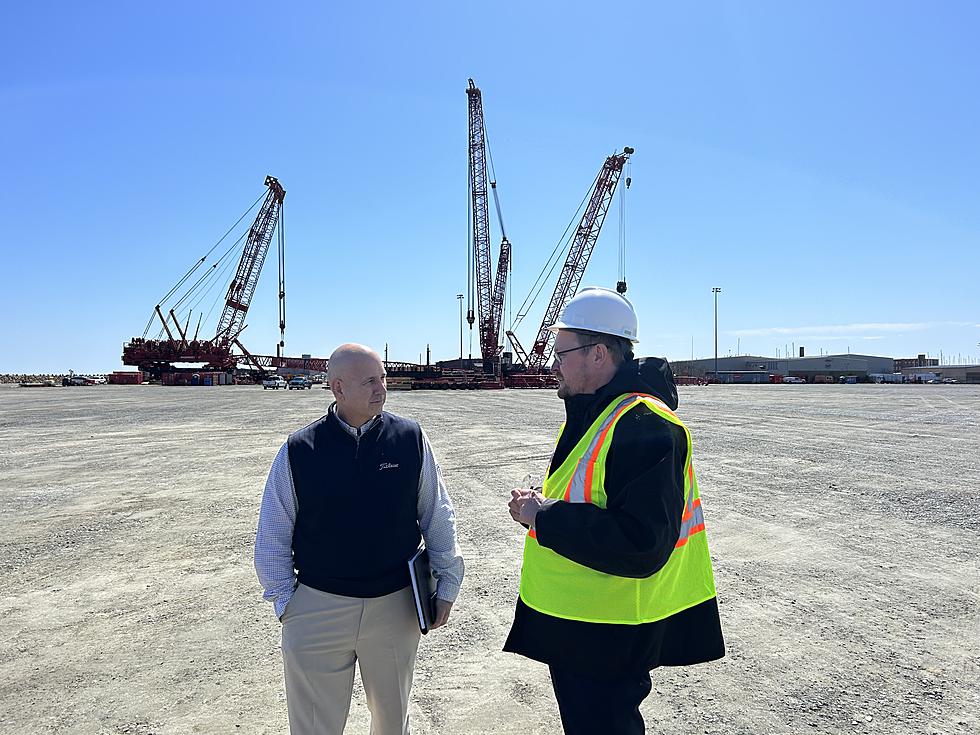
Feds: Vineyard Wind Delay Could Stretch Into 2020
STATE HOUSE, BOSTON, AUG. 13, 2019.....With a critical permit for the Vineyard Wind project on hold so the federal government can launch a new study of the burgeoning offshore wind industry and its potential consequences, the agency conducting that study said Tuesday its review could stretch into 2020.
The U.S. Department of the Interior's Bureau of Ocean Energy Management on Tuesday put more detail to a plan it first announced Friday, when it sent shockwaves through the industry with its plan to hold off on developing the final environmental impact statement for Vineyard Wind while it studies the wider impacts of an offshore wind industry that is hoping to quickly ramp up along the Northeast and mid-Atlantic coastline.
BOEM laid out its process for the additional review Tuesday, which will take the form of a supplement to Vineyard Wind's 2018 draft environmental impact statement, and indicated that the final environmental impact statement is unlikely to come until 2020 -- well after project developers had hoped to begin construction.
"BOEM is expanding its cumulative analysis of projects within its draft Environmental Impact Statement (EIS)," the agency said in an update on its website Tuesday. "Because BOEM has determined that a greater build out of offshore wind capacity is more reasonably foreseeable than was analyzed in the initial draft EIS, BOEM has decided to supplement the Draft EIS and solicit comments on its revised cumulative impacts analysis."
The agency said it will notify all stakeholders when a supplemental environmental impact statement is ready for a public comment period and said it "anticipates completing the Supplemental EIS late this year or early next year."
Officials from Vineyard Wind, a joint venture of Copenhagen Infrastructure Partners and Avangrid Renewables seeking to build an 84-turbine wind farm 15 miles south of Martha's Vineyard, had said in July that the entire project would be at risk if the federal government did not issue the final environmental impact statement by the end of August.
On Monday, Vineyard Wind said its shareholders had "affirmed a commitment to deliver a proposed 800-megawatt (MW) wind farm off the coast of Massachusetts, albeit with a delayed project schedule." The latest delay is likely to upend the supply chain, financing and construction timeline for the project chosen by the Baker administration and state utility companies to fulfill part of a 2016 clean energy law.
Under an executive order signed by President Donald Trump in 2017, federal agencies are supposed to make regulatory decisions in a timely manner so that major infrastructure projects can clear their federal hurdles within two years. BOEM had previously said its two-year review window extends through March 2020, but on Tuesday said only that it "will coordinate with [the U.S. Office of Management and Budget] on potential permitting delays that may result from additional environmental review."
A BOEM spokesman did not respond to a question about the new study's scope. In the update published online Tuesday, BOEM said simply that it "is expanding its cumulative analysis of projects within its draft Environmental Impact Statement (EIS)."
But on Friday, when the decision was first announced, the agency said it would be "expanding its cumulative analysis of projects within its draft Environmental Impact Statement (EIS) to also include projects that have been awarded power purchase agreements, but may not have submitted Construction and Operations Plans (COPs), and potential scenarios based on state procurements that are expected to be awarded."
There are 16 active offshore wind leases that have made it through the federal planning and siting process, according to state clean energy officials, with additional lease areas to be auctioned in the next year off New York and South Carolina.
"It's accelerating in a way that I don't think anybody really anticipated," Energy and Environmental Affairs Undersecretary Patrick Woodcock said at a meeting in Boston last month.
Gov. Charlie Baker's office last week called BOEM's latest study "a step in the wrong direction" and urged the federal government to "move expeditiously" in its review. Vineyard Wind officials implored the federal government to wrap up its additional review as quickly as possible to allow the landmark project to advance.
"While we appreciate that the discussion on cumulative impacts is driven by rapid growth of the industry beyond our project, we urge the federal government to complete the review of Vineyard Wind 1 as quickly as possible," Vineyard Wind officials said in a statement last week. "The project is poised to kickstart a new offshore wind industry that promises industrial growth along with new manufacturing and blue-collar employment across the United States from New England to Louisiana to Colorado and beyond."
More From WBSM-AM/AM 1420


![Wareham to Host Offshore Wind Opportunity Forum [TOWNSQUARE SUNDAY]](http://townsquare.media/site/518/files/2014/06/172545585.jpg?w=980&q=75)




![How New Bedford Businesses Can Benefit From Offshore Wind [TOWNSQUARE SUNDAY]](http://townsquare.media/site/518/files/2019/02/GettyImages-81060055.jpg?w=980&q=75)

